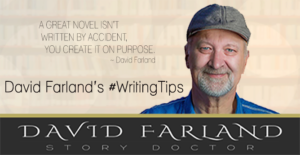Guest Post by Aubrie L. Nixon
Damage Control is such an odd concept to me. How can you really control damage? By the time something is labeled as “damage is is far past the point of being able to control. Damage is essentially uncontrollable. Yet, as human beings we still feel the need to give everything purpose to make things matter, even damage. As a writer, who is working on getting published, I have made my fair share of mistakes. One that stands out the most is rushing into sending out Query letters.
Being the creator of my fictional world, I hold it very dear to my heart. There can’t possibly be anything wrong with my baby, I would know! I created it. How very, very wrong that attitude is. My current work-in-progress, while awesome, is far from perfect. It took multiple rejections from agents for me to realize that. Now, I like to think I got overly excited in finishing my precious book, and sent it out too early. And that very well may be the case. But, I should have never had it sent out without proper revisions and edits to begin with.
I should have realized that while I see my baby as perfect, I would need an outside perspective to love my book enough to help me make the rest of the world see it as perfect. Thankfully, I have awesome friends and beta readers who helped me see that my book can be so much more than it is right now–perfectly imperfect.
I have been hard at work revising and adding the changes that my world needs. The thing about edits and critiques is that you need people who aren’t afraid to tell you what they think. Though, it might be painful to hear, those extra set of eyes are needed in order for you to become a better writer. You owe it to yourself and those characters that you have created to give them the best possible chance to succeed. You need to find people you trust and respect to help keep you motivated when you’re at the end of your rope.
People who will continue to love your world and the characters in it, even if they have to help you tear them apart first. Revising is one of my least favorite things. But, it is essential to do it. In order to get better, you need to revise. I have never in my life heard of someone who had a perfect first draft. It is called a first draft for a reason.
While I like to think I am all that and a bag of chips, and my writing is the tops, it’s not. I need my friends and beta readers to knock me down a few pegs and pull me back into reality sometimes. Looking at where my manuscript was, to where it is now, and where it is headed… phew, I could have never done that on my own.
I shudder to think if I had sent my baby into the world unprepared. It would have been torn to shreds, my career and potential as an author would be ruined by my own ego. So, to say the least, my people saved me from myself and utter humiliation. I have since learned from my mistake, and laugh at how terrible my first draft was.
So fellow humans and lizard people, don’t pull an Aubrie. Learn from the mistakes I made, that could have very well ruined me. Get yourself a few critique partners, take the advice you agree with, even if it hurts. Scrap the advice you don’t like, and revise, revise revise. You owe it to yourself and the world you have created to make sure you have done your very best. Trust me on this.
 Aubrie is 24 years young. She plays mom to a cutest demon topside, and is married to the hottest man in the Air Force. When she isn’t writing she is daydreaming about hot brooding anti-heroes and sassy heroines. She loves Dragon Age, rewatching Game of Thrones and reading all things fantasy. She runs a local YA/NA bookclub with 3 chapters, and over 200 members. Her favorite thing to do is eat, and her thighs thank her graciously for it. If she could have dinner with anyone living or dead it would be Alan Rickman because his voice is the sexiest sound on earth. He could read the dictionary and she would be enthralled. Her current mission in life is to collect creepy taxidermy animals because she finds them cute and hilarious. She resides just outside of Washington DC.
Aubrie is 24 years young. She plays mom to a cutest demon topside, and is married to the hottest man in the Air Force. When she isn’t writing she is daydreaming about hot brooding anti-heroes and sassy heroines. She loves Dragon Age, rewatching Game of Thrones and reading all things fantasy. She runs a local YA/NA bookclub with 3 chapters, and over 200 members. Her favorite thing to do is eat, and her thighs thank her graciously for it. If she could have dinner with anyone living or dead it would be Alan Rickman because his voice is the sexiest sound on earth. He could read the dictionary and she would be enthralled. Her current mission in life is to collect creepy taxidermy animals because she finds them cute and hilarious. She resides just outside of Washington DC.



